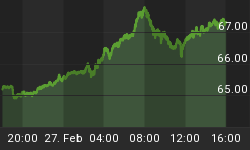
Special Guest: Joseph T. Salerno is an Austrian School economist in the United States. He is a professor at Pace University, an editor of the Quarterly Journal of Austrian Economics, and Academic Vice President of the Mises Institute. Salerno specializes in monetary theory and policy,comparative economics, and the history of economic thought. Dr. Salerno received his Ph.D. in economics from Rutgers University. His most recent publication is Money: Sound and Unsound.
29 Minute VIDEO

(Servitude: Impoverishment & Financial Imprisonment)
Professor Joseph Salerno is a noted Austrian Economist who spoke with the Financial Repression Authority on Financial Repression and his growing concerns with what is referred to as "the War-On-Cash", which he sees leading America and other developed countries in the wrong direction. He sees it as presently gaining momentum in senior policy levels around the world as global debt problems become more acute.
Financial Repression
"A combination of Deliberate Inflation and very low Interest Rates. Interest rates which are kept low by a variety of what are called "Unconventional Monetary Policies."
"There is talk now of having:
- Negative Nominal Rates,
- Governments taking over Pension Funds,
- Varies 'privileging' of government debt as part of bank capital.
so it (Financial Repression) is a series of interferences in the financial markets by government with the end being to push interest rate lowers so they can inflate away their debt! They do that by having interest rates even lower than the rate of inflation."
"What Financial Repression does is transfer surreptitiously resources and coming wealth from savers and retirees to the government and its crony banks. I think it exists, it is dangerous and I think many people are being hurt by it!"
War-On-Cash - Getting to Negative Nominal Bond rates
Professor believes the government wants Negative Nominal Rates but as points out: "The only way they can do that is to lock peoples deposits into the banking system - that is where the War-on-Cash comes in! They would love to restrict or even abolish the use of cash within the United States if they could. That mans they would have to use deposits."
"This another way of propping up a very unsound and dangerously flawed banking system!"
Professor Salerno has spoken out extensively on this subject, most recently at the Mises Circle event in Stamford, Connecticut
Governments, at least modern western governments, have always hated cash transactions. Cash is private, and cash is hard to tax. So politicians trump up phony reasons like drug trafficking and money laundering to win support for bad laws like the Bank Secrecy Act of 1970, which makes even small cash transactions potentially reportable to the Feds.
Today cash is under attack like never before. Ultra low interest rates are the norm for commercial bank accounts. In Europe, as the ECB ventures into negative nominal interest rates, certain banks threaten to charge customers for depositing cash. Meanwhile, certain European bonds now pay negative yields, effectively turning them into insurance products rather than financial assets. And some economists now call for the outright abolition of cash, which shows just how far some will go in their crazed belief that economic prosperity can be commanded by forcing us to spend rather than save.
The War on Cash is real, and it will intensify.
Public Forfeiture
Both bank deposits and withdrawals of cash are now carefully scrutinized by banks and police agencies across America. Safety deposit boxes are seeing increasing restrictions on what can be held in them in the way of cash. People depositing cash often find themselves facing public asset forfeitures and seizures by the police. In some cases when cleared as being innocent then have serious difficulty in getting their seized assets returned. Professor Salerno expounds on this and other troubling new developments in America.
....there is much, much more in this fact filled 29 minute Video.















